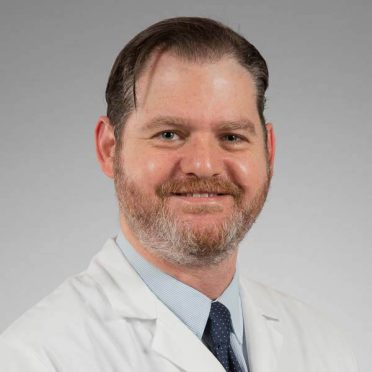Acid reflux isn’t just a nuisance — it can disrupt your day-to-day life, making it hard to enjoy your favorite food or get a good night’s sleep.
While medication offers relief for many with acid reflux, they don’t work for everyone. For those who struggle with persistent symptoms of GERD, surgery may offer a better long-term solution.
“You don’t have to live with these uncomfortable symptoms,” says Kenneth Schwartz, MD, surgical director of Hartford HealthCare’s Swallowing and Reflux Program in Cheshire, Meriden and Southington. “Surgery offers a curative option with minimal risk.”
Here is what you need to know about surgery for GERD.
GERD is serious, chronic acid reflux.
Gastroesophageal reflux disease (GERD) is a condition where material from your stomach (acid, bile, stomach enzymes) “refluxes” backward into the esophagus.
Symptoms include:
- Heart burn
- Regurgitation
- Difficulty swallowing
- Chronic cough, hoarseness or sore throat
- Bloating
Unlike acid reflux, which happens occasionally, GERD occurs frequently and can cause complications or damage to the esophagus.
> Related: GERD Can Cause These 7 Complications
Who is a good candidate for GERD surgery?
“Almost all patients experiencing the appropriate symptoms may be candidates for anti-reflux surgery,” explains Dr. Schwartz. “While there are a few exceptions, this decision is made together with your surgeon.”
Some factors that can influence this decision include:
- Body Mass Index (BMI): While obesity might influence the decision to proceed with anti-reflux surgery, a BMI of 36 or less is generally preferred for optimal surgical outcomes.
- Hiatal hernia: This condition is often a critical factor in severe reflux and can lead to the failure of medical treatments. Hiatal hernias are always addressed during any anti-reflux surgery.
6 signs it may be time for surgery.
Some people find relief from GERD through lifestyle changes and medication.
“Proton pump inhibitors (PPIs) are safe and effective for most people, so please don’t hesitate to take these medications,” says Dr. Schwartz.
If GERD is still making life difficult despite everything you’ve tried, it might be time to think about surgery. Dr. Schwartz shares six signs that suggest it’s worth talking to your doctor:
- Current medications only partially relieve symptoms or not at all.
- Symptoms, like regurgitation, are worsening despite treatment.
- You want to avoid relying on lifelong acid-blocking medications.
- Side effects from medications are becoming an issue.
- You have a hiatal hernia combined with severe GERD symptoms.
- GERD significantly impacts your quality of life despite treatment.
What are my surgery options?
If you’re considering surgery for GERD, you’ll discuss several options with your surgeon—each will always include hiatal hernia repair as the hiatal hernia is generally the crux of the problem.
With Dr. Schwartz’s help, here’s an overview of each procedure:
- Fundoplication: The upper floppy part of the stomach (the fundus) is wrapped around the lower esophagus and sewn in place, using your own tissue for repair. This procedure strengthens the valve between the esophagus and stomach to prevent acid reflux.
- LINX Reflux Management System: A tiny magnetic ring is placed where the esophagus meets the stomach, allowing food to pass while preventing acid from coming back up. It’s often recommended for younger patients and those with optimal esophageal motility.
- Transoral Incisionless Fundoplication (TIF): This minimally invasive endoscopic procedure reconstructs the valve between the stomach and esophagus to combat acid reflux. TIF is particularly beneficial for patients with severe GERD who have underlying medical conditions causing a poorly functional esophagus.
So, what procedure is best for you?
“Your doctor will review your health history and symptoms and perform some preoperative testing,” explains Dr. Schwartz. “From there, we can discuss the best options for you.”
It’s time for much-needed relief.
GERD affects everyone differently, so there’s no one-size-fits-all solution.
Your doctor will tailor treatment specifically to your needs.
“Never hesitate to seek another opinion,” says Dr. Schwartz. “We’re here to help restore your quality of life, whether through surgery or other treatments.”



